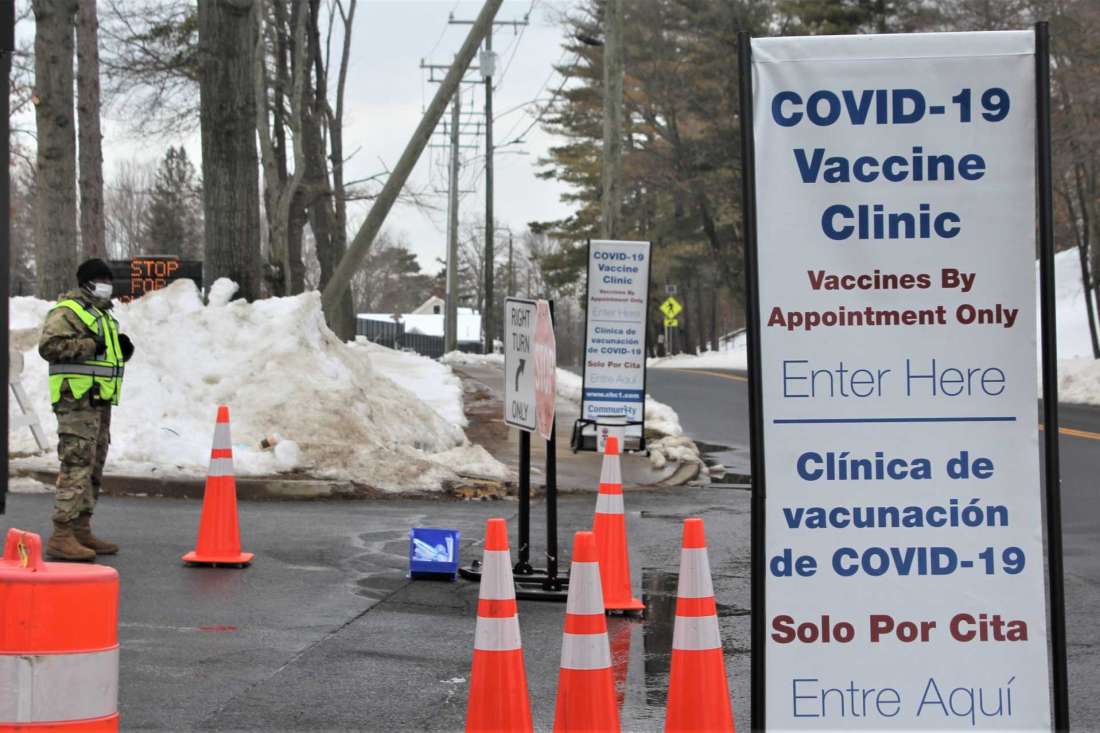
Connecticut officially increased the vaccine eligibility pool to people 55 and older, educators and support staff, and childcare workers on March 1, 2021. Eligible people can go to the Connecticut Vaccine Portal or call 877-918-2224 to find a vaccine clinic.
These new regulations mark the beginning of Phase 2.1 of vaccine rollout in Connecticut. The previous phases vaccinated frontline workers and people 65 and older. There are currently several vaccine clinics set up in Middletown, including one in the Vine St. Parking lot on the University’s campus.
At this week’s Common Council meeting, Director of Health Kevin Elak clarified that “educators and support staff” are not limited to teachers and professors, but also include janitorial staff, bus drivers, and any other staff who must be around children. Furthermore, the term “childcare workers” also includes the nearly 25 licensed daycares in Middletown that are run in residential homes. Elak explained that teams are additionally offering home delivery for vaccines.
“We are also focusing on people that are homebound,” Elak said. “So, we’re starting to get quite a few calls now from people who either have loved ones or are themselves 55 and over [and] who can’t leave the house safely enough to go to a vaccine clinic. So, we’re going to be sending a team out to peoples’ homes to get them a vaccine right in their home.”
In addition to getting vaccines to homebound adults, Middletown has been making an effort to distribute the vaccine to unhoused people, setting up clinics at the Eddy Shelter and the Warming Center at the Wesley Inn & Suites.
University Medical Director Dr. Tom McLarney held a webinar for students about the vaccine this week, focusing on what Middletown’s new regulations mean for Wesleyan students. Students and professors are encouraged to get the vaccine as soon as they are eligible and will be considered “fully vaccinated” two weeks after the last dose of the shot. Because vaccination will have an effect on the current contact tracing policies that are currently in place on campus, all visitors and students who plan to get vaccinated are encouraged to keep their registration card as proof of immunization.
“If [after vaccination] you are exposed to somebody with COVID-19 and identified as a close contact, you do not have to quarantine [unless it has been more than] 90 days after [your second vaccination],” McLarney said. “It may extend beyond that, time will tell.”
Ella Doherty ’24 works as a licensed nursing assistant and received the vaccine in her home state of New Hampshire. According to Doherty, the process of getting the vaccine was overall very simple, and the side effects were mild: just some swelling and soreness around the injection site.
“If you have had negative experiences [with shots in the past], like with anaphylaxis with shots, just be pretty prepared for that,” Doherty said. “Definitely stay and be monitored…. I think that’s a good idea for everyone.”
Middletown’s positivity rate is currently on the decline, and, according to Elak, this is a direct result of the vaccine.
“Our positivity rate is under 2%, which is the first time that it has been for quite a while now,” Elak said. “And then also, most importantly too, is that the case rate went down. It’s below 20 now, which is very good to see of course, especially because it was over 25 just two weeks ago.”
However, Elak emphasized that preventative measures, such as masks and social distancing, are still necessary.
“The vaccination effort has of course been a big part of those numbers going down,” Elak said. “But we also know that we still have much work to do, of course with continuing the vaccinations, and we still need to do those things…. [I]t’s still very important to stress that we still need to wear our masks when we’re out near others and still to avoid those crowds.”
Molly Meyer can be reached at mkmeyer@wesleyan.edu


Leave a Reply